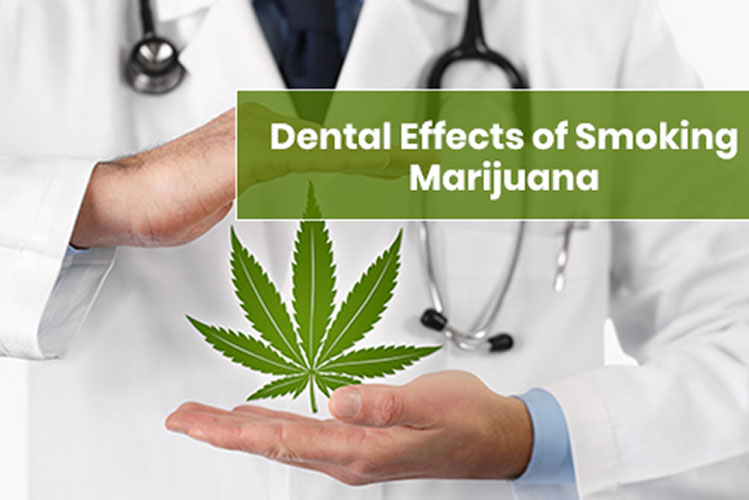The Cannabis Act came into effect on October 17, 2018, and now Canada is one of only a handful of nations to have lawful utilization of this medication.
Therefore, regardless of whether you are newly using Cannabis or have taken it for some time, it is imperative to know how this now lawful medication can influence your oral well-being.
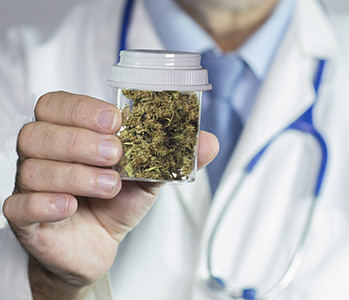
Cannabis comes from the cannabis plant (cannabis sativa). It grows wild in many of the tropical and temperate areas. It can be grown in almost any climate; its cultivation is increasingly by indoor hydroponic technology. Most people who use Cannabis do so to experience a sense of mild euphoria and relaxation, often referred to as a “high”. Cannabis causes changes in the user’s mood and affects how they think and perceive the environment, e.g., everyday activities such as watching the television and listening to music can become altered and more intense.
Like cigarettes, cannabis smokers risk creating oral disease from both the medication itself and cancer-causing agents in the smoke that can harm tissues in the mouth.

There is a connection between oral infections and Cannabis. The primary active component in Cannabis is called delta-9 tetrahydro-cannabinol, commonly known as THC. It is the part of the plant that gives the “high”. When the THC in Cannabis enters the circulation system, it influences your immune system and can debilitate your resistance framework – this can open your gums and teeth to diseases.
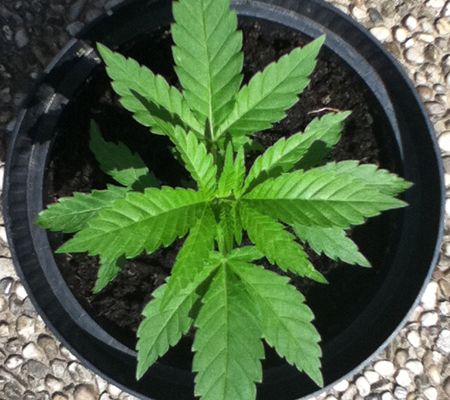
Dry mouth (or xerostomia) is a common impact of cannabis use. When your mouth is dry oral tissues are easily irritated and can ulcerate. Drying out of the teeth can lead to dental cavities. If you feel your mouth is dry, please talk to Dr. Hawryluk for possible remedies. One such remedy is MI paste.
Please visit us here to learn more about MI paste:
To learn more about xerostomia, please visit us here:
Dry Mouth: Causes, Symptoms, Prevention and Treatment
Yellowing or darkening of teeth is an unattractive impact of cannabis use. Almost everyone wants to have shiny white teeth; however, smoking, in general, can cause deep stains in your teeth which can be challenging to remove. Please let us know if you would like to discuss removing smoke stains from your teeth with Dr. Hawryluk. Whitening your teeth may be an option, but ideally, you should discontinue cannabis use before beginning the whitening process.
To learn more about teeth whitening please visit our post:
Some cannabis users report getting very hungry after its use, and some call this “the munchies”. This drug causes the body to release the hormone Ghrelin, which increases appetite. Unfortunately, the customary go-to snacks after cannabis use are usually not nourishing. Make sure to flush with water after sugar-laden snacks to prevent cavities. If your Cannabis is in acidic foods, make sure to wait an hour before brushing to avoid tooth erosion – this is because teeth get temporarily soft after acidic foods. It is essential to know that edible forms of Cannabis such as “cannabis brownies” have a longer onset time, and the effects can last longer. Cannabis edibles are better because they don’t have the unsafe impacts of smoke. Be that as it may, you have to watch out for the sugar content in the confections and chocolates.
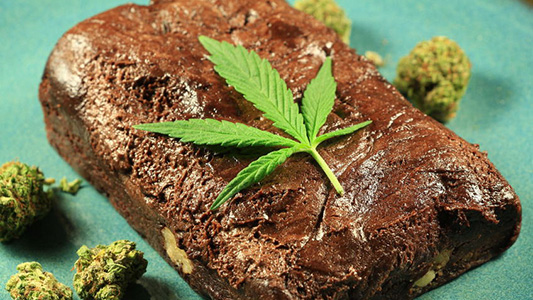
If you are new to cannabis use, make sure to converse with St. Lawrence Dentistry frankly about its utilization. We will screen your mouth and help contain the impacts of cannabis use. This drug can impact your dental treatment, and Dr. Hawryluk may need to alter or postpone your dental appointment if you have been using this drug before your appointment. It is always best to abstain from using Cannabis before your dental visit. It is especially true if you have a sleep dentistry (general anesthesia) visit planned at St. Lawrence Dentistry. Utilizing Cannabis can also cloud your ability to be adequately understood. Dr. Hawryluk will need full informed consent before dental treatment, which may not be possible with cannabis use.

The short-term outcomes of using Cannabis may include a feeling of well-being, talkativeness, drowsiness, loss of inhibitions, coordination loss, bloodshot eyes, anxiety, and paranoia. The long-term effects of Cannabis can be increased risk of respiratory diseases associated with smoking, cancer, decreased memory, decreased motivation, and concentration. In addition, there is also much concern about the link between cannabis use and mental health problems and the risk of dependence. Quitting the use of Cannabis can have a tremendous impact on your health in general. If you need help quitting, please visit your medical doctor.
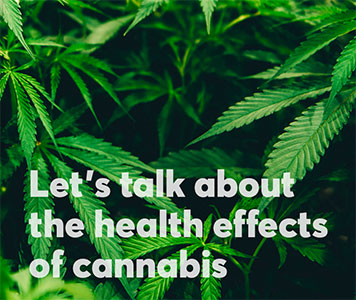
In particular, if you would like more information on quitting smoking please visit our blog article.
Cannabis is a drug, and you must not take its effects lightly. Please inform St. Lawrence Dentistry of any usage to ensure a safe and relaxed dental visit.
Source:
- St. Lawrence Dentistry Looks Forward To St. Patrick’s Day! - March 12, 2025
- Understanding Dental X-Rays and Radiation: What You Should Know - January 13, 2025
- Happy New Year from St. Lawrence Dentistry! - December 30, 2024



